Doug Huffman
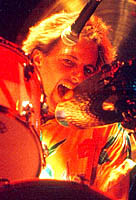 Doug lived in northern California and started playing with the drums when he was 14. School-buddy guitar players made up his "formal training" as they played weddings and private parties. Just out of high school, Doug started a band with some players he knew were serious. They called themselves "A Euphonious Wail", wrote their own songs, and secured a record deal with MCA Records. They released their first album in 1973 and toured as the opening act for Black Sabbath, Bloodrock, and Steppenwolf. Before they started their second album, their guitar player decided rock and roll life wasn't for him and he quit. "We offered the job to a guitar/vocalist guy named Sammy Hagar, but he didn't want to play guitar anymore, he just wanted to sing, so we sent him packin'!! Too bad... he really missed an opportunity there!" It was around that time that Gary Pihl noticed what a great singing drummer Doug was. Gary tried to get Doug to consider being front man for his band Crossfire. They also tried to hire Sammy Hagar but Sammy had put his own band together by then.
Doug lived in northern California and started playing with the drums when he was 14. School-buddy guitar players made up his "formal training" as they played weddings and private parties. Just out of high school, Doug started a band with some players he knew were serious. They called themselves "A Euphonious Wail", wrote their own songs, and secured a record deal with MCA Records. They released their first album in 1973 and toured as the opening act for Black Sabbath, Bloodrock, and Steppenwolf. Before they started their second album, their guitar player decided rock and roll life wasn't for him and he quit. "We offered the job to a guitar/vocalist guy named Sammy Hagar, but he didn't want to play guitar anymore, he just wanted to sing, so we sent him packin'!! Too bad... he really missed an opportunity there!" It was around that time that Gary Pihl noticed what a great singing drummer Doug was. Gary tried to get Doug to consider being front man for his band Crossfire. They also tried to hire Sammy Hagar but Sammy had put his own band together by then.
In 1975, Doug landed a gig with a guy making a comeback by the name of Link Wray. He'd had a single back in 1957 called "Rumble" in which he introduced the "power chord" to rock music. "Although the gig lasted only six months, it was an honor to work with a living legend."
From 1976 to 1982, Doug worked with "Pacific Coast Highway", another songwriting/touring band playing festivals and small venues up and down the West coast. 1983 found him moving his family to Eureka Springs, Arkansas where he started playing in musical theater. "This was totally different from anything I had done before and it prepared me for a life-changing event... the call to audition for "Boston" !"
"Early in 1987, I got a phone call from Gary Pihl saying that Boston waslooking for a singing drummer to do an up-coming tour and asked if I would consider auditioning! I was told to learn 4 songs verbatim and that a plane ticket would be in the mail for me. I learned the tunes, then packed my autograph book and my camera! Hey, I knew I would never get the gig, but I really wanted to meet the guys from one of my all-time favorite bands !"
"I flew there, I flew back... I flew there again, I flew back. Each time I went, I worked with a different bass player (a position that was open as well). Finally, on my fourth trip, I was there with bassist David Sikes, who I'd auditioned with one time before. When we saw each other, we both thought, "maybe we're the ones!?!" Excitement turned to jubilation when, after a few hours of playing, we were asked to do the tour!"
"The six-month tour turned into years of fun, adventure and friendship with Tom, Brad, Gary, Dave, and a fantastic crew of forty-some-odd guys and gals."
"When we finished the fourth album, "Walk On", in June of 1994, Tom wanted to make some changes in the line-up and I was asked to step down. We're all still friends... no hard feelings. Tom Scholz is a fabulous human being with a vision of how and what he wants the band to be. There have been even more changes in personnel since I left, but that's what makes Boston "contemporary". They're not your typical "classic-rock" band. It was the experience of a lifetime and I miss their smiling mugs! (here's to you, Brad)"
In December of 1995, Doug and some friends started a country music theater in Branson, Missouri. It's a great show with some incredibly talented musicians that continues today. In June of 2005, Doug's parent's declining health prompted Doug and wife, Valerie, to move to Oregon to care for them. Although he lost his parents, Doug stayed on there with Valerie, enjoying each other and the beautiful Southern Oregon coast.
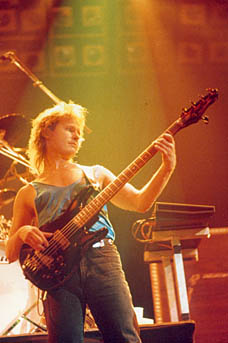 David Sikes spent the first four years of his life near his birthplace of Cambridge, England, until his family relocated to California. David's interest in music began much in the same way that many of the youth of his generation had... with his exposure to the Beatles. Learning trumpet and French horn in elementary school, he also played a mean air guitar and sang along to his favorite bands. He got his chance to rock as a sophomore in high school, when some friends invited him to join their band. They were in need of a bass player, so David saved his money, bought one, and taught himself how to play by listening to his favorite records and picking the notes up by ear.
David Sikes spent the first four years of his life near his birthplace of Cambridge, England, until his family relocated to California. David's interest in music began much in the same way that many of the youth of his generation had... with his exposure to the Beatles. Learning trumpet and French horn in elementary school, he also played a mean air guitar and sang along to his favorite bands. He got his chance to rock as a sophomore in high school, when some friends invited him to join their band. They were in need of a bass player, so David saved his money, bought one, and taught himself how to play by listening to his favorite records and picking the notes up by ear.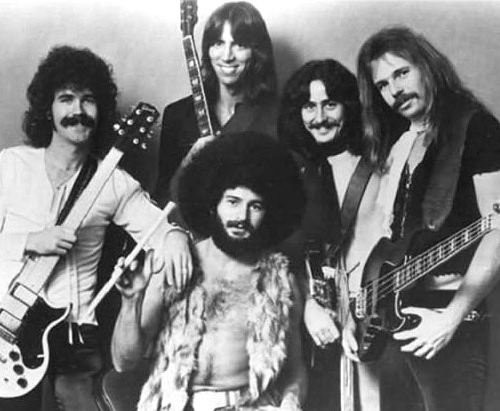
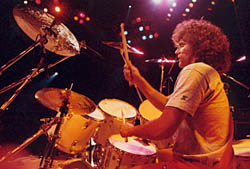
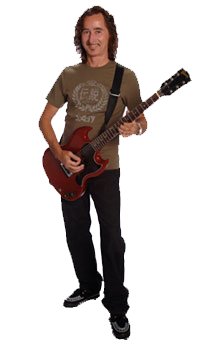 Nov 29, 1951
Nov 29, 1951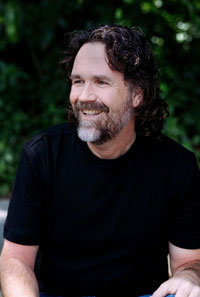 Born in the north shore of Boston, Brad Delp has been playing music ever since childhood, buying his first guitar at 13 after seeing The Beatles on The Ed Sullivan Show. "It cost $60, and it had an amplifier built into the case, which was a great thing," he says, "and it was all of five watts." Shortly thereafter, he joined his first band, The Iguanas, and has been rocking ever since. Brad remembers, "The Iguanas was rather short lived. Most of the original Iguanas remained when we changed our name to The Monks (this was before the Monkees), and that was the band that I played with all through high school. I still see most of those guys today."
Born in the north shore of Boston, Brad Delp has been playing music ever since childhood, buying his first guitar at 13 after seeing The Beatles on The Ed Sullivan Show. "It cost $60, and it had an amplifier built into the case, which was a great thing," he says, "and it was all of five watts." Shortly thereafter, he joined his first band, The Iguanas, and has been rocking ever since. Brad remembers, "The Iguanas was rather short lived. Most of the original Iguanas remained when we changed our name to The Monks (this was before the Monkees), and that was the band that I played with all through high school. I still see most of those guys today."